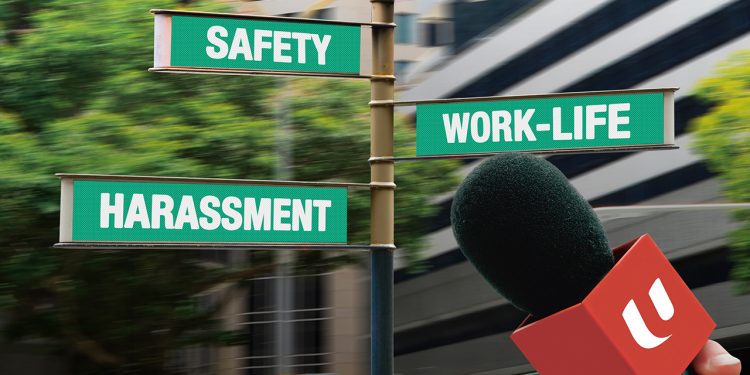What are the hot button topics heating up water cooler talk? LabourBeat journos head down to the streets to find out what the man on the street can’t get enough of.
Flexible Work Arrangements
Talk about flexible work arrangements in Singapore and immediately mums, dads and elderly folks come to mind.
It is about caring for working parents at the different stages of their lives and how an employer – be it the public or private sector – can be flexible and accommodate the needs of the employee, hopefully without blaming them.
This is even more urgent today in dealing with the twin challenges of a shrinking population due to a declining birth rate and the rising number of people getting older and needing care assistance.
But for others, flexible work arrangements goes beyond care, for example those who want to find time to give back to society.
Meanwhile, there are some employers who want to ensure there are sufficient workers to meet peak business operations.
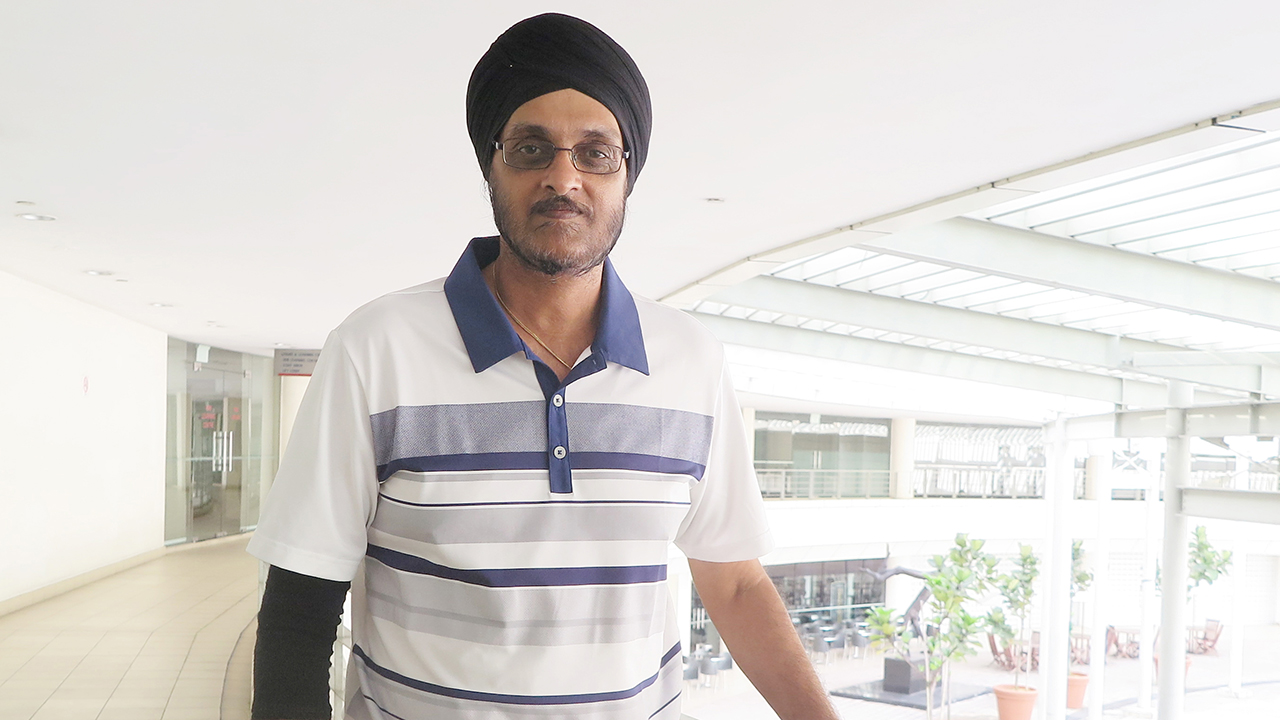 “Flexible work arrangements are more appropriate for working mums because they are the ones taking care of the kids especially in their growing up years. Arrangements like allowing the mum to work from home are helpful so that if they need to be back home when the children return from school, they can juggle their schedules accordingly.
“Flexible work arrangements are more appropriate for working mums because they are the ones taking care of the kids especially in their growing up years. Arrangements like allowing the mum to work from home are helpful so that if they need to be back home when the children return from school, they can juggle their schedules accordingly.
We now have paternity leave so when the mother needs to be in the office to get work done, the husband is around to take care of the kids.” – Manmohan Singh, 55, Senior Housing Executive
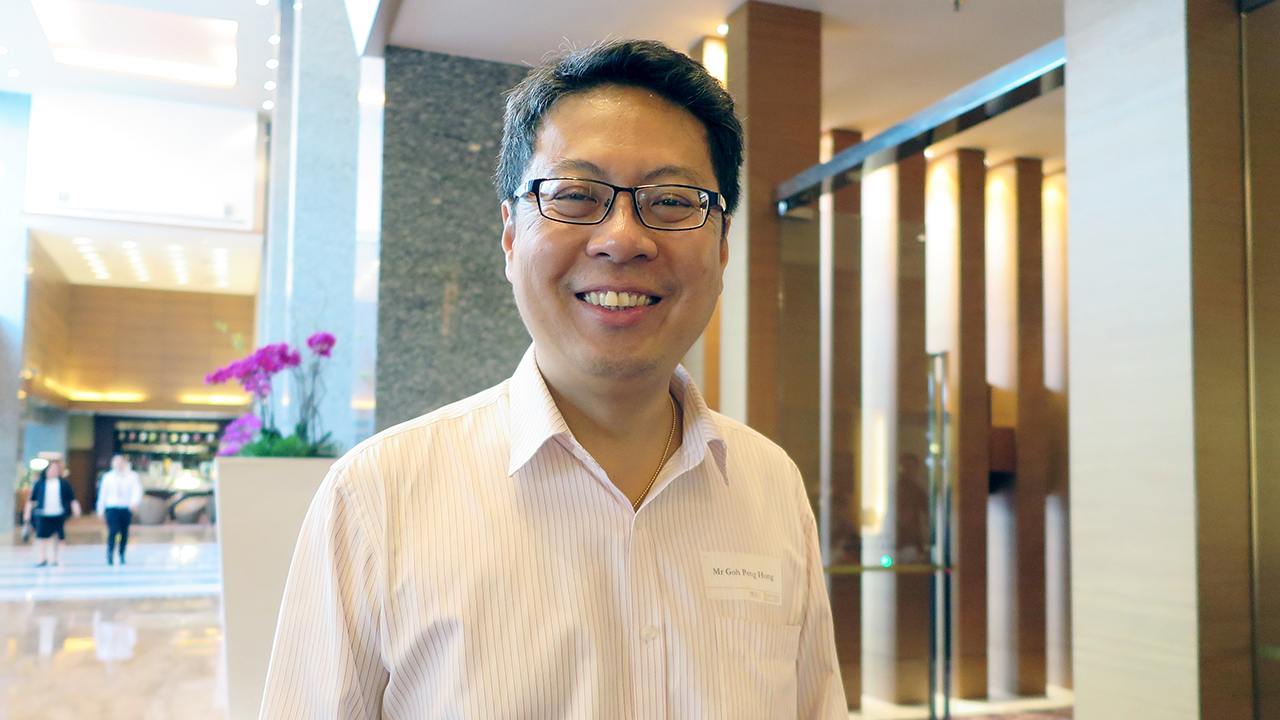 “There is another aspect to flexible work arrangements and work-life balance. It is making sure that we accomplish what has been tasked to us in the most efficient way, so that we can make better use of the time to do some meaningful things to help the community. Life is short, hence we need to find the balance and do what we feel about passionately and is good for us and society.”- Goh Peng Hong, Motor Insurance Manager
“There is another aspect to flexible work arrangements and work-life balance. It is making sure that we accomplish what has been tasked to us in the most efficient way, so that we can make better use of the time to do some meaningful things to help the community. Life is short, hence we need to find the balance and do what we feel about passionately and is good for us and society.”- Goh Peng Hong, Motor Insurance Manager
“I am a mother of two and flexible work arrangements are very important for people who have taken a break from the regular workforce because they can’t stick to the 9 to 5pm kind of work arrangement. The way technology is evolving flexible work arrangements are very easy now and such things are now important because we need to retain the right people in the workforce and keep them connected. As far as Singapore is concerned, my personal feel is that the adoption of flexi-work arrangements here is still very much evolving and one factor which will determine the success of such work arrangements is the trust of employers. It also requires a lot of discipline on the part of the worker to be able to deliver the work assignment while being allowed to work from home.”- Ruchi Singhal, 37, Senior Project Manager.
“For me as a foreigner, I welcome flexible work arrangements for staff as long as it is beneficial to the company in terms of productivity and the company’s growth. In this sense we should also be open to accept other roles in the company as part of flexi-work to help the company achieve its targets set out.”- Maria Lorena, 50, Finance Manager in a construction company.
Workplace Harassment
In just three months since the Protection from Harassment Act took effect in November 2014, over 170 applications for Protection Orders (POs) have been filed. The applications were filed by victims of online, sexual and debt collection-related harassment.
The number above also includes those facing harassment at the workplace – a place where one goes to make an honest living but is harassed instead.
You can also take this number with a pinch of salt considering most workplace harassment go unreported. Everyone has received one of those nagging sessions by our bosses – including myself. But besides the obvious physical and sexual harassment, how does a worker know if the talking-to he received from his boss is part of the job or a malicious intent?
What is considered workplace harassment, what can workers do when it happens to them, and where is the fine line between ‘tough love’ and ‘abuse’? It’s one of the faintest lines to see as what one person can take is different from another.
 “Verbal abuse at the workplace is quite common here. With bosses acting as superiors, it blurs the line, and you can’t be sure if the boss is crossing the line of abuse or not. And a lot of times, employees will just take it. Things get out of hand because workers don’t realise that they have the right to be unhappy about what people say to them at work. If your colleague harassed you, you can go to your boss. But if your boss harassed you, who can you go to? Most workers will just quit their job if they can’t take it anymore. Harassment is also an issue people tend to avoid.” – Tabatha Lim, 18, Recruitment Consultant
“Verbal abuse at the workplace is quite common here. With bosses acting as superiors, it blurs the line, and you can’t be sure if the boss is crossing the line of abuse or not. And a lot of times, employees will just take it. Things get out of hand because workers don’t realise that they have the right to be unhappy about what people say to them at work. If your colleague harassed you, you can go to your boss. But if your boss harassed you, who can you go to? Most workers will just quit their job if they can’t take it anymore. Harassment is also an issue people tend to avoid.” – Tabatha Lim, 18, Recruitment Consultant
“I think most people who feel harassed will talk to their HR or bosses. If it continues to be ignored, then they will quit their jobs. The company culture is also very important. If the seniors have been taking care of the juniors, the juniors will pass this on to their juniors when they become seniors.” – Lois Goh, 25, Brand Ambassador
“I’m a Bangladeshi, and I’ve been working here for four years. It’s not right to harass someone at work, especially physically and verbally. Everything can be settled amicably if you talk to your fellow workers nicely and with respect. But as a foreign worker in Singapore, I would rather quit that job than be fired and sent back to my country. If I do so, at least I can look for another job. But if I get fired, I cannot come back here to work.” – Muhammad Nazmul Abul Hossin, 27, Technician
“I was driving a cab for four years before I started with Uber two years ago. In my line of work, it is common for passengers to shout and hurl vulgarities. I felt like quitting so many times. Things are slightly better now as we have on-board cameras in the car. So instead of shouting at me, they would say words that pierce through my heart. As a self-employed individual, there isn’t really anywhere to go to for help, only friends and family can give a listening ear. Right now, I will just swallow my pride and hope for a better day with my honest living.” – Mohd Nazir Mohd Shaffir, 39, Uber Driver
Safety at Work
Yes there has been an improvement in the number of reported workplace injuries – 6,151 cases in the first half of the year compared to the same timeframe last year. Likewise for fatal injuries (268 versus 289) and those resulting in permanent disability (19 versus 42).
But is it significant enough? Not really, because one life lost, one major injury sustained, is still one too many.
We should not be resting on our laurels. Some leading causes of deaths or accidents that resulted in major injuries at the workplace this year were due to slips, trips, falls and vehicular related incidents – many of which were a direct result of negligence.
The onus to ensure safety lies on the individual worker, employer, and the Government in that order. All parties hold a collective responsibility to ensure the worker who comes to work healthy and alive, goes home healthy and alive.
“If companies do not have safety precautions in place, they will bear responsibility. But for my younger brother who has his own business, he can only rely on himself. He had an accident at his factory because his colleague did not return the welding equipment to the right place. It fell on him and almost caused him to lose his hand. But thanks to his quick reaction and composure, he received treatment in time at the hospital. His insurance also helped in the process.” – Lee Deok Im, 54, Cleaner
“I used to work in logistics. A safety supervisor plays a very important role when doing manual jobs. I know of cases when the safety supervisor becomes complacent or doesn’t follow the regulations. I don’t think that’s right. To me, training is important but it isn’t enough. Workers must also adopt the correct mindset. They can have all the safety knowledge in the world but if they don’t apply them and cut corners, then what’s the point?” – Rizuan Abdullah, 29, Dispatch Rider
“A lot of foreign labourers who come to Singapore are from third world countries. They usually work in industries with high casualty rates. From what I know, immigrant workers make up a really high number of these casualty rates. When you put the onus of safety solely on the employer who is out to make profit, there is bound to be a loophole some will take advantage of.
Are we putting enough measures to train workers or put in place checks and balances? Proper steps and measures must be taken by all parties to make sure they do their work safely. The Government should apply hefty fines or punishment to employers who are negligent in keeping their workers safe.” – JD Saha, 40, Architect
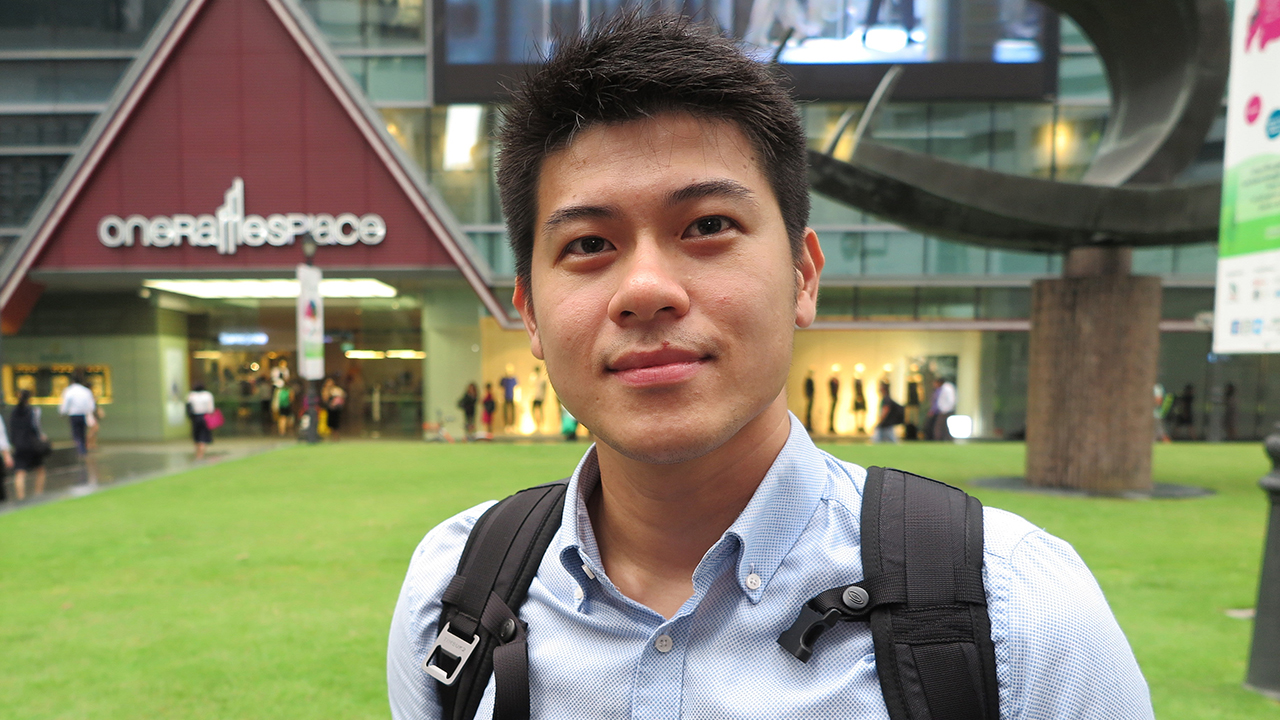 “I think the type of training for workers on safety can be more holistic. Perhaps adopt a training simulation where workers and employers can see the cause and effect of safety negligence. I read a case where the maid fell out the window and died. I think HDB can design their new flats to be fall proof. Like in China, they use safety nets. I’m not sure if you can apply that here.
“I think the type of training for workers on safety can be more holistic. Perhaps adopt a training simulation where workers and employers can see the cause and effect of safety negligence. I read a case where the maid fell out the window and died. I think HDB can design their new flats to be fall proof. Like in China, they use safety nets. I’m not sure if you can apply that here.
Of course the employer also shouldn’t ask the maid to clean the window from the outside in the first place. I don’t think they are trained for that. If I had a maid, I wouldn’t ask her to do that because a life is much more important than a clean window. A lot of people are concerned about the safety of their cats and dogs, but allow their maids to do this. We should actually be more concerned about the safety of our maids. She’s a fellow human being.” – Sam Yang Shing, 28, Executive
Technological Transformation
While we reap the benefits of technology in our daily lives, many of us are still fearful of its role at the workplace. As technology evolves fast and furious, it has become a ticking time bomb for businesses and workers to embrace it and stay relevant.
To help Singaporeans wield the double-edged sword to their advantage, the Government is introducing plans to transform 23 industries and introducing numerous training initiatives in 2017 alone. The big question is, is this enough to catch all the segments of the population? If not, what gaps should be filled and how?
“We are given hundreds of minutes in our phone plans but nobody uses them anymore because WhatsApp calls are so much easier. For e-payments, I know some from the older generation are more comfortable paying cash and think that cards are not safe. In terms of regulation, MAS (Monetary Authority of Singapore) also enforces security because they are afraid of hacking and so on.
There are still a lot of question marks about Smart Nation. I know there are agencies like GovTech but if you speak to business owners, they don’t even know how they are getting there or the things they want to do. We need to educate and think about how to promote the shift to the Smart Nation.” – Dominic Kam, 38, Sales Manager
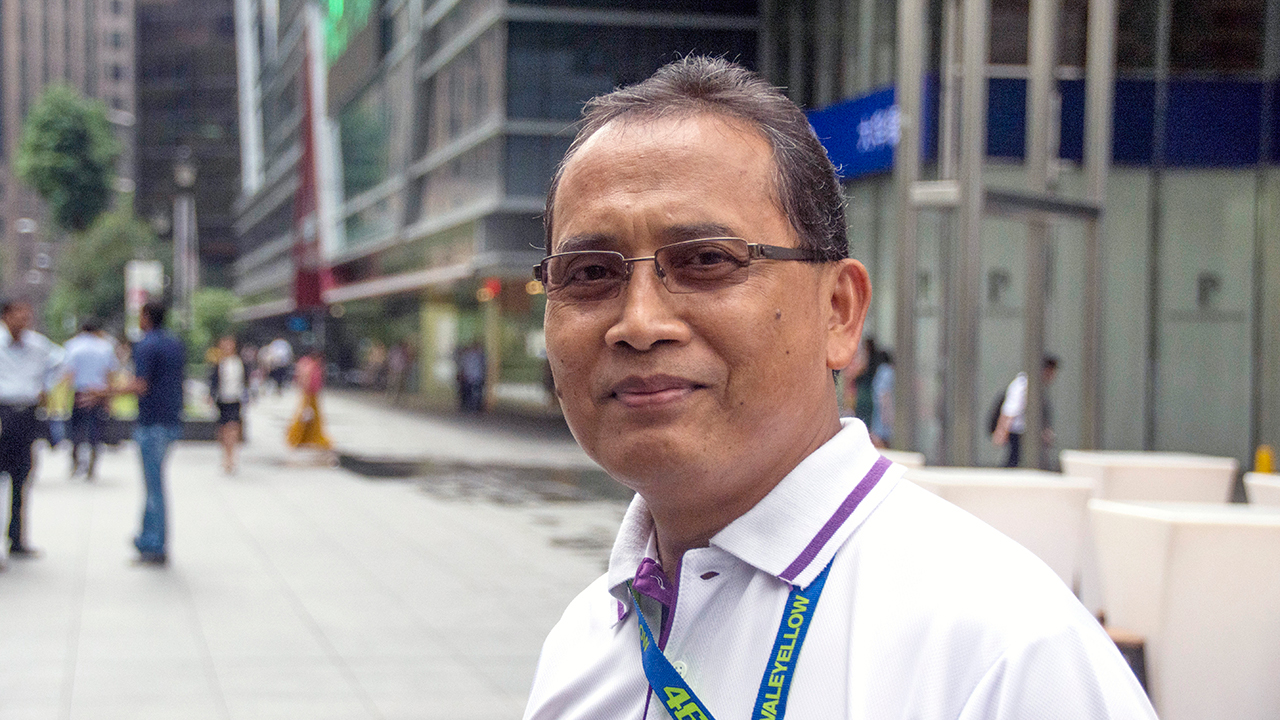 “To me, robots are not smarter than humans because they are made by us. However, robots don’t complain and one of them can do the jobs of many people. We definitely cannot be as accurate as them. Technology is great for the country but I think the low-income people are worried about their jobs.
“To me, robots are not smarter than humans because they are made by us. However, robots don’t complain and one of them can do the jobs of many people. We definitely cannot be as accurate as them. Technology is great for the country but I think the low-income people are worried about their jobs.
If I am 30 or 40 years old, maybe I will think about taking courses. But at my age now, I don’t think until so far. My mind is focused on earning as much as possible so that I can retire and go for overseas vacations when I want.” – Mustafa Kamal, 61, Finance Assistant
“There is some resistance in adopting technology because of the nature of my industry, available resources and cost. We have gone somewhat paperless but a lot is still [converted from] hardcopy documents. The progress could be faster but we are working towards it.
I think in the future, there will be a lot of companies that will rise and fall because of the disruptions to the society. Private hire [vehicles] for instance, are changing the economics of the taxi industry and probably the transport system. People hardly stand by the streets to flag for taxis now.” – Grace Morgan, 27, Lawyer
“Everything has its pros and cons. With all these gadgets, there have been so many leaks of private pictures and videos but without them, it is difficult to contact family and friends. Nothing is perfect.
The grants for upgrading are good but not for us. The Government also can’t give me the time and energy. With machines to wash plates and deliver food, will people become useless? The Government has to crack their brains on how to think for the people.” – Foo Mook Kuan, 61, Cleaner

